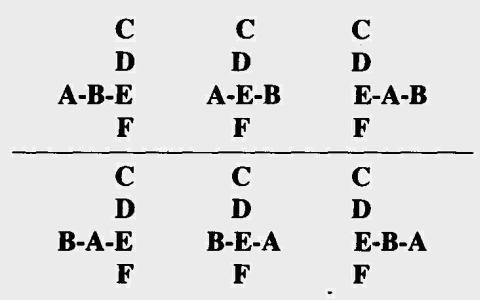There is no doubt that trifecta betting is one of the hardest challenges - if not the hardest - facing the punter today.
It is difficult at the best of times picking a winner, let alone the first three horses in exact order of finish.
However, the trifecta popularity is witnessed by the queues at the ticket-sellers' windows - not the cashiers.
Being a win-only bettor, trifectas are for me. I have seen people with dark rings under their eyes betting on horse numbers related to birthdays, licence numbers, ages, anniversaries ... you name it.
Having fond regard for a bulky wallet in my pocket I had long decided to leave trifectas alone.
However, following a challenge from a friend, I decided to systematise trifectas to return a profit.
I first decided to ignore a selection method in preference to a BETTING method.
Depending on the track and date, the trifecta race will be run under varying conditions. Therefore, each event must be classified on its own merit.
Another very important aspect is the odds. Below is a table showing the number of possible outcomes up to an 11 - horse race. By 'outcomes' I mean the number of different combinations of the first three placegetters.
| Horses | Outcomes |
|---|
| 11 | 990 |
| 10 | 720 |
| 9 | 504 |
| 8 | 336 |
| 7 | 210 |
| 6 | 120 |
| 5 | 60 |
| 4 | 24 |
| 3 | 6 |
Any sensible person will agree that it is vital to eliminate several outcomes in order to have a reasonable chance of collecting. So, this is how I would proceed:
Eliminating non-contenders.
You may have your own criteria, but to eliminate a horse you have got to be able to say, "This horse cannot run a place". It's quite possible you'll only get rid of two or three, but it's enough to give you a chance.
Horses that finish fifth or worse by seven or more lengths in their last race generally are good candidates for elimination. They can be joined by horses that have not raced for 30 days or more and have not been doing well.
Selecting the best chances.
Most of us can pick these. How many times have you heard, "he's got a good chance in this?"
If you can identify only three horses you take the three-horse box. This is nothing new to racegoers. I don't recommend this system because usually there are one or two others with the potential to finish in a place.
Naturally, you can box as many horses as you like, but the extra expense for a possible return can be harmful to the wallet - and to peace at home that night.
The key horse.
There always is a race with a shining star - the even-money or odds-on favourite which should walk it in. Red Anchor, for example.
A lot of punters would pick Red Anchor with everything and the grandmothers second and third.
I have slightly modified this. Suppose there are 10 horses in the race and I have eliminated four as non-contenders and have chosen one horse as my winner. I'm left with five horses for the remaining two places.
By wheeling the five horses with my key horse the number of tickets I purchase is:
1 (key horse) X 5 (possible seconds) x 4 (possible thirds) = 20 units.
You will notice that 25 units are not required because that is equivalent to the same horse finishing second and third.
The general formula for the number of tickets needed if there are contenders for second and third and one key horse is: 1 X N (contenders) X N- 1 = number of units.
Key horse 2nd and 3rd.
You can vary the above bet by placing the key horse second or third, and the number of units wagered remains the same.
One of the classical racing theories is that an odds-on favourite will finish second - and they usually do after you've bet a small fortune on them. In this case you would choose the key horse second in your trifecta.
I have seen certain horses which never seem to win a race. Their records for the current year might look like 22 1-10-5. Horses such as these often are good candidates for a key horse second bet.
The all play.
NOW this is what I consider the best of trifecta betting.
You identify two major horses (preferably a front-runner and a strong finisher) and place them in all possible combinations with the other nags.
Suppose I like horses A and B and have identified C, D, E and F as other chances. In other words, I am confident that A and B will be there but I can't decide between the rest. This is what I would do:

This totals 24 bets, but it can be modified. If I am sure that either A or B will win column 3 is eliminated and only 16 bets are required.
By Statsman
PRACTICAL PUNTING - APRIL 1985